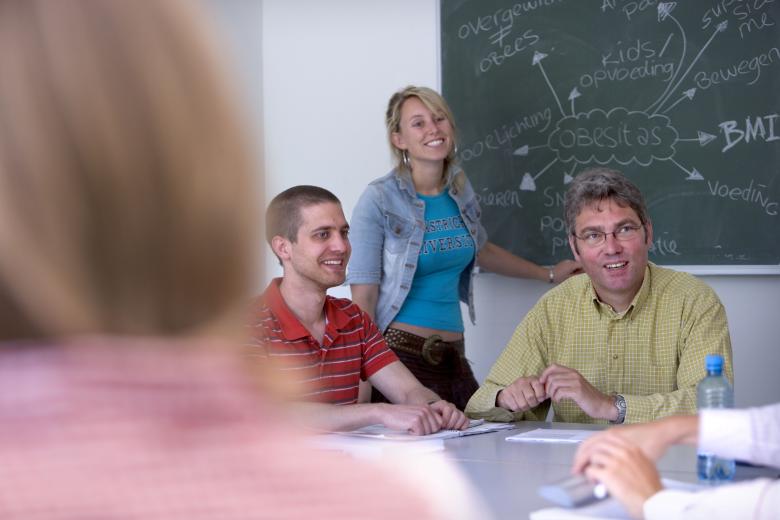UM rejoins Academic Heritage Foundation: A New Phase of Collaboration
With Maastricht University (UM) joining the Dutch Foundation for Academic Heritage (SAE), UM becomes a member of this foundation again after a four-year absence. This also marks the first time that 13 Dutch universities are simultaneously members.
Positive Response to Renewed Membership
According to coordinator Frank Meijer, the foundation is delighted that UM has rejoined on 1 January 2024.
"As a university network, it is valuable to have the broadest possible coverage, with participants from various backgrounds, histories, and sizes. UM is the youngest university in our network, with a strong international perspective and student population, and a focus on digital developments. This makes Maastricht a very interesting participant."
UM decided to terminate its SAE membership at the end of 2019 because it chose to focus its orientation on cooperation with heritage institutions, museums, and archives in the (EU)region in the coming years.
Future Collaboration between UM and the SAE
Now that UM has re-joined, it looks forward to what it can achieve together with the SAE through collaboration in the coming years.
"UM will soon celebrate its 50th anniversary," explains Bart Zwegers, curator of academic heritage at UM's Arts and Heritage Committee (KEC). "The anniversary is a good opportunity to reflect on our history and heritage. I think we can learn a lot from how other institutions handle academic heritage."
According to Zwegers, the SAE is a valuable platform for exchanging experiences and learning from one another.
"As a curator, you have to think about what to preserve and what not, how you preserve and unlock heritage, and how you use it in research and education."
Sustainable Accessibility of Heritage
Tomorrow’s heritage is being shaped today, and this principle certainly extends to archival records. However, a significant portion of digitally created archival material faces the risk of being lost. Therefore, according to Manuël Boessen, archivist and record manager at UM, it is important to think about the sustainable accessibility of this heritage from its inception, wherever possible.
"On that front, universities can learn a lot from each other. As UM, we are happy to make an active contribution here."
UM's Contribution to the SAE
According to Odin Essers, curator of UM's Special Collections, UM can make a significant contribution to the SAE, especially in terms of knowledge and experience of innovative developments in the field of heritage.
"We endorse UM's Open Science policy and the policy of University Libraries and the Royal Library's (UKB). This new approach to scientific information aims to strengthen collaboration between stakeholders, making the use of information more accessible, transparent, auditable, faster, more efficient, reproducible, and sustainable. This also applies to our heritage.”
Hence, UM opts for FAIR data, FAIR software, Open Educational Resources (OER), and citizen participation (Citizen Science).
"In addition, we have a responsibility to digitise our unique and otherwise inaccessible sources with the aim of visibility and usability by a wide audience. By presenting our digitised collections as linked, open, and enriched as possible to as broad an audience, we create conditions for new ways of publication, research, and use," says Essers.
UM's Unique Cultural Treasures
UM possesses valuable cultural treasures. Therefore, SAE Chair Dymph van den Boom looks forward to what the collaboration will yield.
"The university holds a significant collection in the humanities, including the Jesuit collection along with the school prize bindings collection. The collections of Maastricht poet Pierre Kemp and Limburg painter Charles Eyck are also unique. These collections comprise books of museum significance, along with the extensive correspondence exchange between Charles Eyck and Wim Aerts, the latter being Eyck's biographer, spanning from 1977 to 1983. These special collections are a valuable addition to the special collections of other Dutch universities."
Get in touch
If you would like to learn more about UM's Special Collections, please contact curator Odin Essers via Ask your librarian. Follow the Special Collections on social media: Maastricht University Special Collections (@specialcollectionsumlibrary) | Instagram and Special Collections – Maastricht University Library | Maastricht | Facebook
Also read
-
Despite a less tight labour market no end to shortages in healthcare, education, and tech
Interesting new findings in the report 'The Labour Market by Education and Occupation until 2030' from the Research Centre for Education and the Labour Market (ROA) at Maastricht University.
-
A strong education network for Brabant and Limburg: better alignment, less dropout
On November 24, 2025, secondary schools (VO) and higher education institutions (HO) in Brabant and Limburg will sign up for the Education Network South Netherlands: one VO-HO network that will improve the flow of students to further education and reduce dropout rates.
-
More than a student job: five alumni about their unique role in groundbreaking vascular research
What is it like to take part in cutting-edge vascular research as a student, standing in the operating room, directly responsible for handling patient material? Five alumni of the Maastricht MAPEX student team share what they learned, the challenges they faced, and how this experience shaped their...